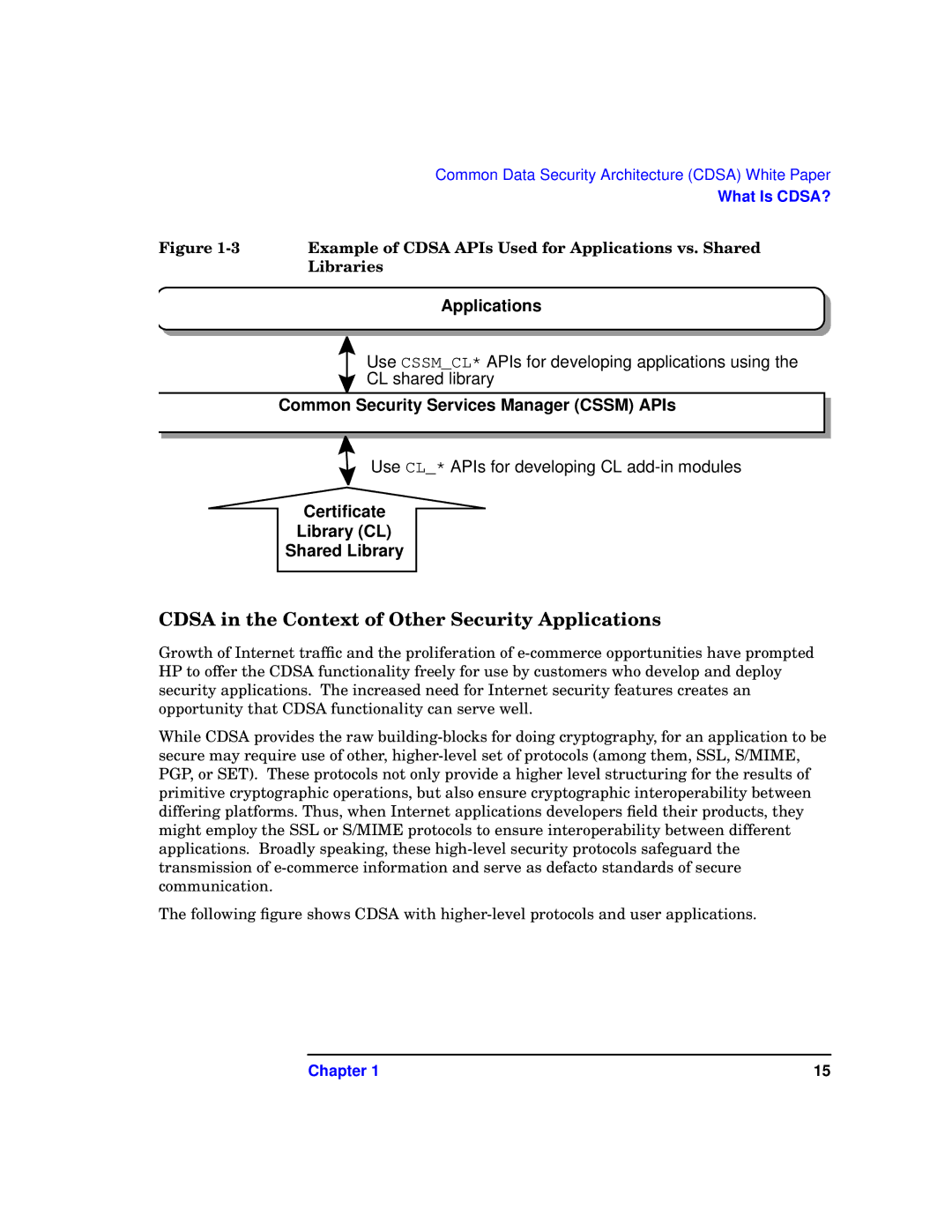
| | | Common Data Security Architecture (CDSA) White Paper |
| | | What Is CDSA? |
Figure 1-3 | Example of CDSA APIs Used for Applications vs. Shared |
| | Libraries |
| | | Applications |
| | | Use CSSM_CL* APIs for developing applications using the |
| | |
| | | CL shared library |
| | |
| | | | |
| | Common Security Services Manager (CSSM) APIs | |
| | | | |
| | | | |
| | | Use CL_* APIs for developing CL add-in modules |
| | Certificate |
| | Library (CL) |
| | Shared Library |
CDSA in the Context of Other Security Applications
Growth of Internet traffic and the proliferation of e-commerce opportunities have prompted HP to offer the CDSA functionality freely for use by customers who develop and deploy security applications. The increased need for Internet security features creates an opportunity that CDSA functionality can serve well.
While CDSA provides the raw building-blocks for doing cryptography, for an application to be secure may require use of other, higher-level set of protocols (among them, SSL, S/MIME, PGP, or SET). These protocols not only provide a higher level structuring for the results of primitive cryptographic operations, but also ensure cryptographic interoperability between differing platforms. Thus, when Internet applications developers field their products, they might employ the SSL or S/MIME protocols to ensure interoperability between different applications. Broadly speaking, these high-level security protocols safeguard the transmission of e-commerce information and serve as defacto standards of secure communication.
The following figure shows CDSA with higher-level protocols and user applications.

